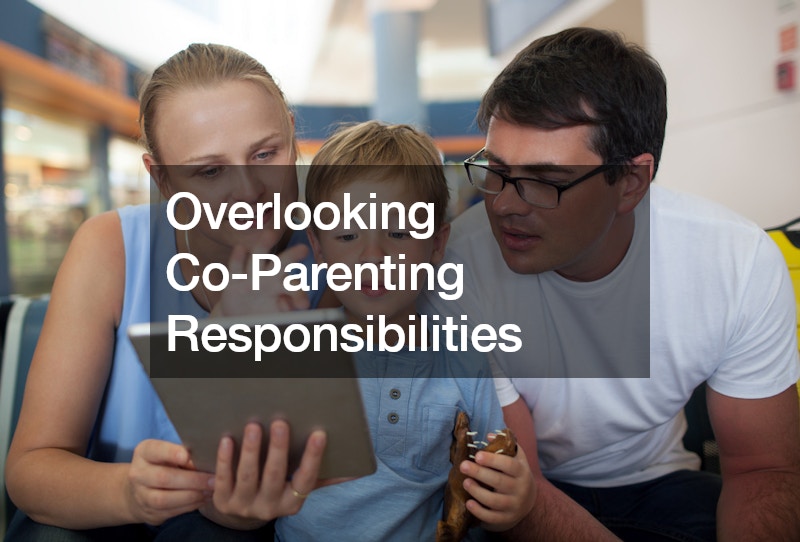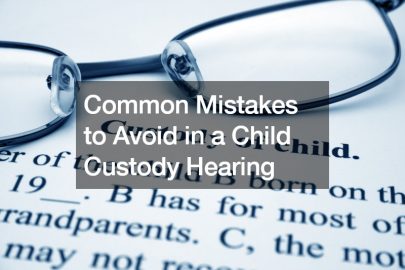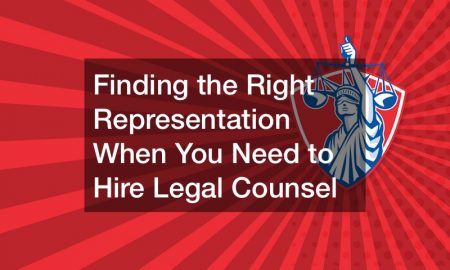Navigating a child custody hearing can be one of the most emotionally charged and stressful experiences for any parent. The stakes are incredibly high as the court determines what arrangement will best serve the child’s interests. While the process may seem daunting, being aware of common mistakes and how to avoid them can make a significant difference in the outcome. This article will cover common pitfalls that parents face during a child custody case, from lack of preparation to failing to communicate effectively. By understanding these mistakes, you can better prepare yourself and improve your chances of achieving a favorable outcome in your custody case.
Lack of Preparation

One of the most critical mistakes parents make during a child custody hearing is a lack of preparation. Failing to gather necessary documents, witnesses, and evidence can have a detrimental effect on the outcome. It’s essential to work closely with a child attorney to ensure that you have all the required paperwork and testimony.
The role of a child attorney is to help you navigate the complex legal landscape. They can guide you on what evidence is most compelling and how to present it effectively. Lack of preparation often means critical details are overlooked, making it more difficult to advocate for the child’s best interests.
Inadequate preparation can also lead to misunderstandings regarding legal requirements, potentially harming your case and jeopardizing your child’s future. Familiarize yourself thoroughly with the specifics of your case and the court’s expectations. Your child attorney can provide invaluable guidance on what to expect and how to conduct yourself during the hearing. Good preparation is essential for presenting a compelling case that prioritizes your child’s best interests.
Work closely with your child attorney to gather essential documents, identify key witnesses, and prepare compelling evidence. Thorough preparation ensures you can effectively advocate for your child’s best interests during the custody hearing, maximizing your chances of a favorable outcome.
Allowing Emotions to Influence Decisions
It’s perfectly normal to be emotional during a child custody case. However, allowing these emotions to influence your decisions can be detrimental. For instance, a heated argument or hostile behavior towards the other parent can negatively impact your case. It is crucial to remain as composed and level-headed as possible.
Emotions can sometimes cloud judgment, leading to decisions that don’t serve the child’s best interests. For example, hostility can lead to refusing necessary cooperation on matters like choosing a family dentist or discussing day care arrangements. This not only affects the immediate situation but also sets a poor foundation for long-term co-parenting.
Engage in self-care practices to manage stress and emotions effectively. Seeking guidance from professionals like a child attorney, family counselor, or therapist can provide invaluable support. Being emotionally stable allows for more rational decisions, which is crucial for a successful child custody hearing process.
Additionally, maintaining open communication with the other parent, even through a mediator if necessary, fosters a cooperative environment. This approach facilitates smoother discussions on crucial parenting issues and promotes a more amicable resolution, which is beneficial for both parents and the child involved.
Disregarding Court Orders
Disregarding court orders is a significant mistake that can severely damage your credibility in a child custody case. Whether the orders pertain to visitation schedules or financial obligations, they must be adhered to strictly. Ignoring them not only shows disrespect for the court but also undermines your case.
For instance, if a court has ordered specific visitation times and you consistently fail to comply, it reflects poorly on you. Showing that you can honor these arrangements is crucial in demonstrating your reliability as a parent. Compliance is vital even for disagreements over smaller issues, like day care decisions.
If you believe a court order is unfair or unfeasible, consult your child attorney to explore legal avenues for modification. Until any changes are approved by the court, full compliance is non-negotiable. Being proactive and respectful will significantly contribute to a favorable outcome in your child custody case.
Failure to comply with court orders can lead to serious consequences, including fines or even loss of custody rights. It’s essential to maintain a detailed record of all communications and agreements related to custody matters.
Speaking Negatively About the Other Parent

Speaking ill of the other parent is one of the most detrimental things you can do during a child custody hearing. Courts are primarily concerned with the best interests of the child, and a negative portrayal of the other parent often backfires. Refrain from badmouthing or sharing negative sentiments, especially in front of the child.
This mistake can damage any chance of reaching a cooperative co-parenting arrangement. Joint decisions on private education or extracurricular activities can become contentious. By maintaining a respectful attitude, you show that you can prioritize the child’s well-being over personal grievances.
A positive approach enhances your standing in the eyes of the court. It demonstrates your willingness to foster a supportive environment for the child. Respect towards the other parent speaks volumes about your character and can significantly influence the results of the child custody case.
Focus on communicating positively about the other parent’s involvement in the child’s life. Emphasize their strengths in parenting and acknowledge their role in the child’s upbringing, fostering a more cooperative and supportive co-parenting dynamic.
Neglecting the Child’s Best Interests
Failing to prioritize the child’s best interests is a grave mistake in any child custody hearing. Courts are laser-focused on what will best serve the child’s emotional, educational, and physical needs. Decisions should revolve around what is beneficial for the child rather than personal convenience or desires.
For instance, the choice of preschool and long-term educational plans must be made with the child’s development in mind. Evidence of neglect or failure to consider these aspects can severely harm your case. Make decisions and present evidence that shows your commitment to the child’s best interests.
Courts scrutinize every detail, from living arrangements to educational opportunities. Putting the child first involves actively engaging in their life and focusing on their future. The more you can demonstrate this focus, the more likely you are to achieve a favorable outcome in the child custody case.
Ensure all decisions, from living arrangements to educational opportunities, prioritize the child’s well-being and development. Show your active involvement in their life and present evidence that underscores your commitment to their long-term happiness and stability.
Failing to Communicate Effectively
Effective communication is crucial during a child custody hearing and beyond. Miscommunication or lack of communication can lead to misunderstandings and further conflict. Clear, respectful, and consistent communication shows that you can cooperate effectively in the best interests of the child.
This is especially important when discussing sensitive issues related to child development and day-to-day care. Maintaining open lines of communication ensures that both parents are on the same page and can make joint decisions more efficiently. Poor communication can be interpreted as unwillingness or inability to co-parent.
Use tools like parenting apps or regularly scheduled meetings to discuss the child’s needs and any concerns. Good communication mitigates misunderstandings and establishes a routine that can continue post-hearing. Effective communication is a strong indicator of a successful co-parenting relationship, which courts highly favor.
Consider utilizing mediation services or family counseling to improve communication between you and the other parent. These resources can provide structured environments for discussing sensitive matters and finding mutual agreements that prioritize the child’s well-being.
Overlooking Co-Parenting Responsibilities

Overlooking co-parenting responsibilities is another significant mistake that can adversely affect a child custody case. Fulfilling these responsibilities shows your commitment to sharing the duties of parenthood. Failure to do so suggests that you may not be willing or able to prioritize the child’s needs.
For example, ignoring agreements about taking the child to medical appointments or skipping scheduled visits can reflect poorly on you. Similarly, not participating in decisions like child dentistry or extracurricular activities signals a lack of commitment to the child’s overall well-being.
Engage actively in all co-parenting responsibilities, from attending parent-teacher meetings to planning family activities. Demonstrating your engagement and fulfilling your responsibilities can positively influence the court’s decision. The goal is to present yourself as a reliable, active, and responsible co-parent.
Regularly attend parent-teacher meetings and actively participate in planning family activities. Displaying consistent involvement in your child’s life reinforces your commitment and responsibility as a co-parent, which is crucial for a favorable outcome in a child custody hearing.
Not Seeking Legal Guidance
Failing to seek legal guidance is a mistake that can profoundly impact the outcome of a child custody case. A qualified child custody lawyer can provide invaluable advice and representation. Their expertise ensures that you are well-prepared, informed, and able to navigate the legal complexities of your case.
A child custody lawyer helps in understanding legal terms, gathering necessary evidence, and formulating a compelling argument for your case. Self-representation might save money initially, but the long-term risks often outweigh the benefits. Legal guidance is essential in ensuring that your rights and your child’s interests are protected.
Consult with a child custody lawyer as early as possible to discuss your case. They can help design a strategy that will be most effective for your specific situation. Seeking professional legal assistance enhances your ability to present a well-prepared and compelling case during the child custody hearing.
Additionally, a lawyer can offer insights into local court procedures and precedents, which are crucial for building a strong case. Their guidance ensures that all legal requirements are met, maximizing your chances of achieving a favorable outcome in the child custody proceedings.
Ignoring Children’s Preferences (When Appropriate)
Ignoring the preferences of older children can be a significant misstep in a child custody hearing. While younger children may not have the maturity to make such decisions, older children’s opinions are often taken into consideration by the court. A child’s preference is particularly relevant if it aligns with their best interests.
For example, if an older child expresses a strong preference for living with one parent, this can carry weight. Consultation with a pediatrician or child development expert can help ascertain the validity and reasons behind the child’s preference. Ignoring these insights can be detrimental to your case.
Respecting the child’s voice demonstrates a willingness to consider their feelings and perspectives. This is often viewed favorably by the court as it shows respect for the child’s emotional needs and preferences. Engage with professionals to help navigate these complexities and take the child’s preferences seriously.
In cases where a child expresses a preference, engage with professionals like a child psychologist to understand the reasons behind their choice. Demonstrating respect for the child’s wishes can positively influence the court’s perception of your willingness to prioritize their emotional well-being.
Neglecting to Document Interactions

Documentation is a tremendous asset in any child custody hearing. Failing to document interactions, communications, and important events can be a severe oversight. Proper documentation serves as concrete evidence and supports your claims during the hearing.
Keeping detailed logs of visitation schedules, communications, and any incidents can be highly beneficial. Your divorce and family law attorney will likely recommend maintaining a meticulous record of all interactions. This documentation can corroborate your statements and provide a timeline of your involvement and actions.
Tools like parenting apps or even simple journals can be used for this purpose. Keep records of everything from medical appointments to day care pickups. Proper documentation is a crucial element in presenting a comprehensive and credible case during your child custody case.
Utilize email trails, text message screenshots, and written summaries of conversations to build a thorough record. This documentation can substantiate your involvement in the child’s life and adherence to agreements, bolstering your credibility in court.
Navigating the intricacies of a child custody case involves recognizing and avoiding common mistakes that can adversely impact the outcome. From meticulous preparation and effective communication to respecting court orders and documenting interactions, every detail matters. Emphasizing the child’s best interests and making collaborative, well-informed decisions is critical. Working with a qualified child custody lawyer and other professionals like a pediatrician or family dentist can offer invaluable guidance. By being well-prepared and focusing on these essential aspects, you can significantly improve your chances of a favorable outcome in your child custody hearing.


